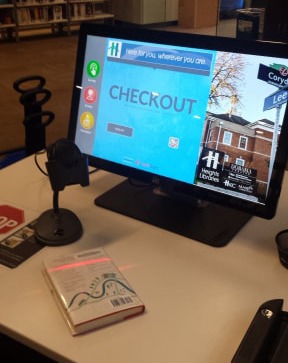 For the first time in its 100-year history, the Cleveland Heights-University Heights Public Library circulated over two million items in one year. Director Nancy Levin confirmed the number with CLEVNET, the library consortium that manages Heights Libraries’ online catalog and tracks the circulation of its member libraries.
For the first time in its 100-year history, the Cleveland Heights-University Heights Public Library circulated over two million items in one year. Director Nancy Levin confirmed the number with CLEVNET, the library consortium that manages Heights Libraries’ online catalog and tracks the circulation of its member libraries.
“This was a very busy year for us, so the numbers don’t really surprise us, but we are thrilled to hit this milestone,” said Levin. “With so many different ways to access materials, people are borrowing more now than ever.”
As of December 31, 2019, Heights Libraries circulation was 2,072,833 for the year. Circulation for physical holdings still far outnumbers that for electronic holdings. A total of 1,868,673, or 90.15 percent, of the 2019 circulation was comprised of physical holdings, like books, DVDs, and CDs; electronic holdings, like eBooks, audiobooks, online magazines, and streaming media (movies, TV shows, and music), comprised 9.85 percent.
“The eMedia circuclation, while lower than the physical holdings, demonstrates that we’re offering access to a wide variety of materials to as many people as possible, wherever they may be,” said Deputy Director Kim DeNero-Ackroyd. “Customers consume media differently than they used to, and we are keeping up with those trends.”
She continued, “I truly believe physical books will never go away, but If it’s 10 p.m. and you’re, let’s say, stuck at the airport and want a book to read, you can download one instantly. Or if your child needs a resource for a school project after library hours, you can go online.”
Another possible factor contributing to the high circulation numbers is the Library’s fine-free policy, instituted in 2018. Customers who previously may have been intimidated by punitive policies that prevented them from checking out items now feel welcome again.
Levin also wonders if the Library’s ever-increasing circulation numbers could be part of a larger social trend, what some call the “sharing economy.”
“It seems that young people are less interested in owning things and more interested in finding a way to share resources, like cars and housing,” said Levin. “Libraries have always operated on the principle of sharing, so we cater naturally to the values of millenials and younger generations who believe in it, too.”


